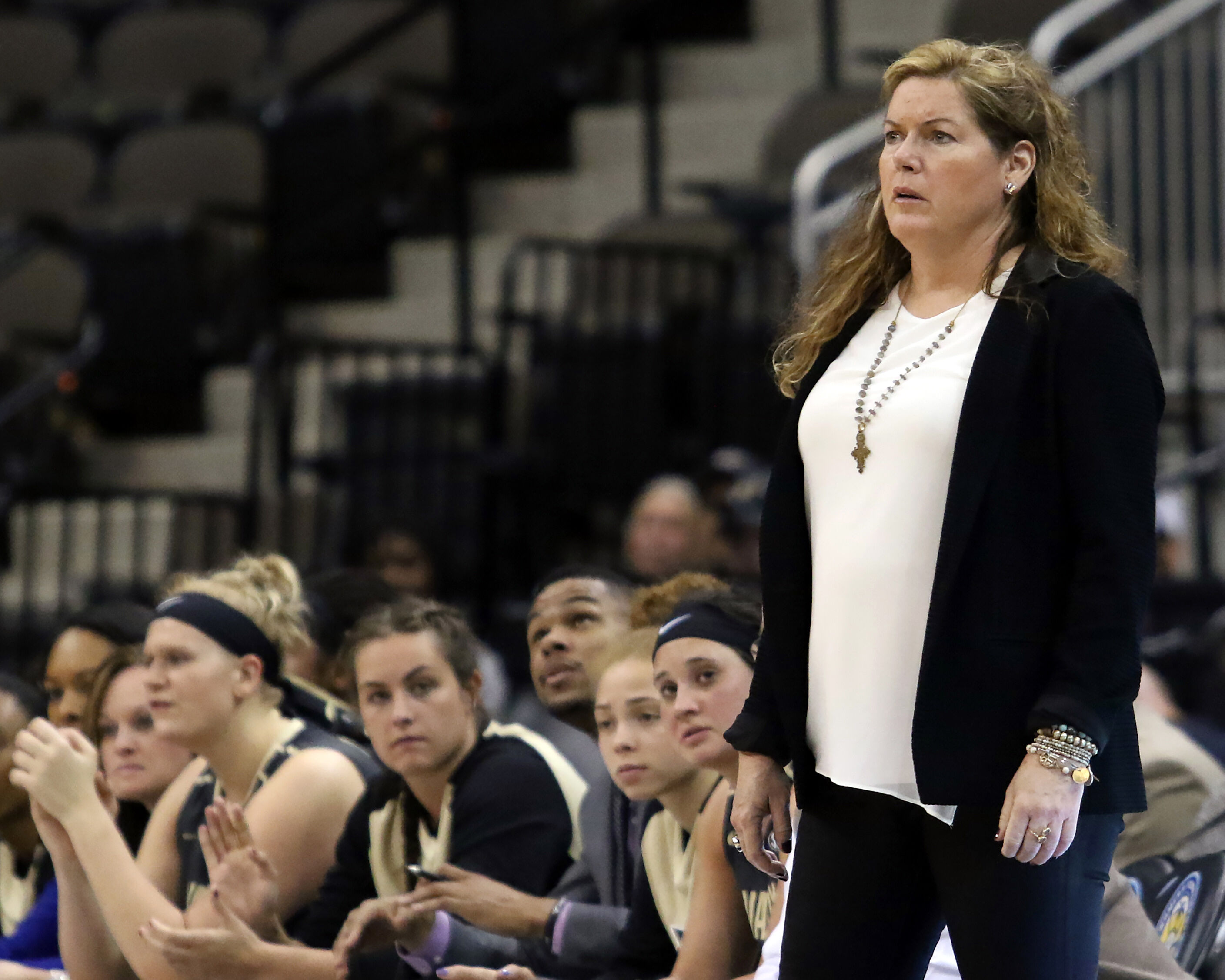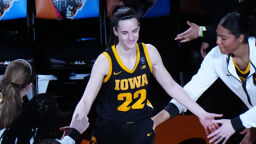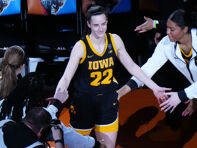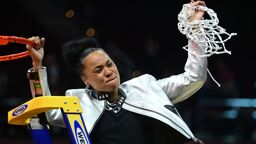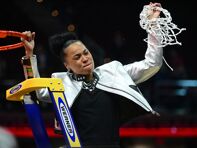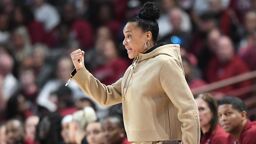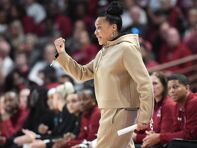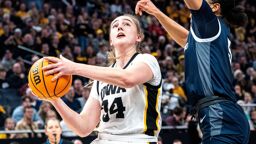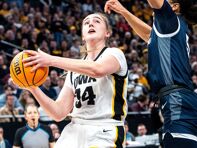An openly gay assistant women’s basketball coach at the University of South Carolina says homophobia is one reason the number of female coaches in women’s college sports is declining.
A New York Times A1 story on women college coaches focused in part on Dawn Staley, the South Carolina head coach who has the Gamecocks in the Final Four against Stanford tonight.
This season, Staley found an innovative way to add another female assistant coach at South Carolina. She hired Melanie Balcomb, who had been the head coach for 14 seasons at Vanderbilt, to be in charge of analytics, a groundbreaking role for women’s college basketball.
An appealing feature of the job for Balcomb, who has two young children, was that she did not have to travel or recruit during the season. But there was another important reason to choose South Carolina, she said Thursday. Balcomb and her female partner, who are both white, adopted African-American children.
For these reasons, she said, “we haven’t been welcomed everywhere, and Dawn welcomed me and my family. It’s been an unbelievable experience.”
Homophobia, Balcomb added, “is the white elephant in the room that doesn’t get talked about.”
It was frustrating that the story did not delve into this subject any more since it’s something we have been aware of and written about for years. There are a lot of lesbian coaches in women’s college basketball but only two right now who are publicly out as head coaches — Vanderbilt head coach Stephanie White and La Verne (Calif.) head coach Julie Shaw.
Get off the sidelines and into the game
Our weekly newsletter is packed with everything from locker room chatter to pressing LGBTQ sports issues.
“Negative recruiting” has long been an issue in women’s sports. A 2011 ESPN The Magazine report succinctly defined what negative recruiting is:
Pitches emphasizing a program’s family environment and implicit heterosexuality are often part of a consciously negative campaign targeted at another program’s perceived sexual slant. In a survey of more than 50 current and former college players, as part of The Magazine’s seven-month look at women’s basketball recruiting, 55 percent answered “true” when asked if sexual orientation is an underlying topic of conversation with college recruiters.
The Times’ story notes that “in 1972, when the gender equity law known as Title IX was enacted, women were head coaches of more than 90 percent of women’s college teams across two dozen sports. Now that number has decreased to about 40 percent.”
There are myriad reasons given for this, and discrimination based on sexual orientation is one of them. It’s a subject that needs to be confronted head on and we need more people like Balcomb willing to address it publicly.
